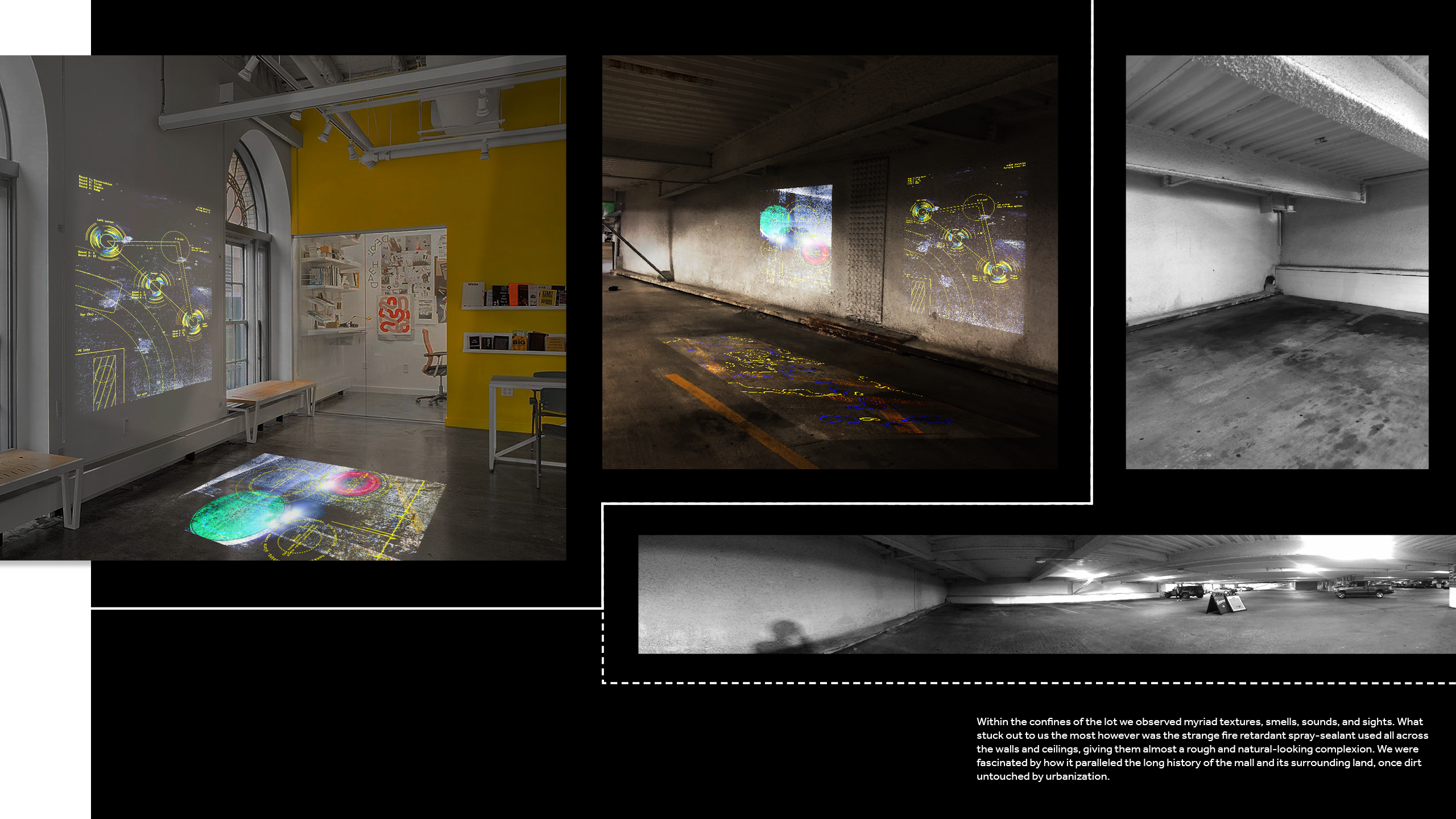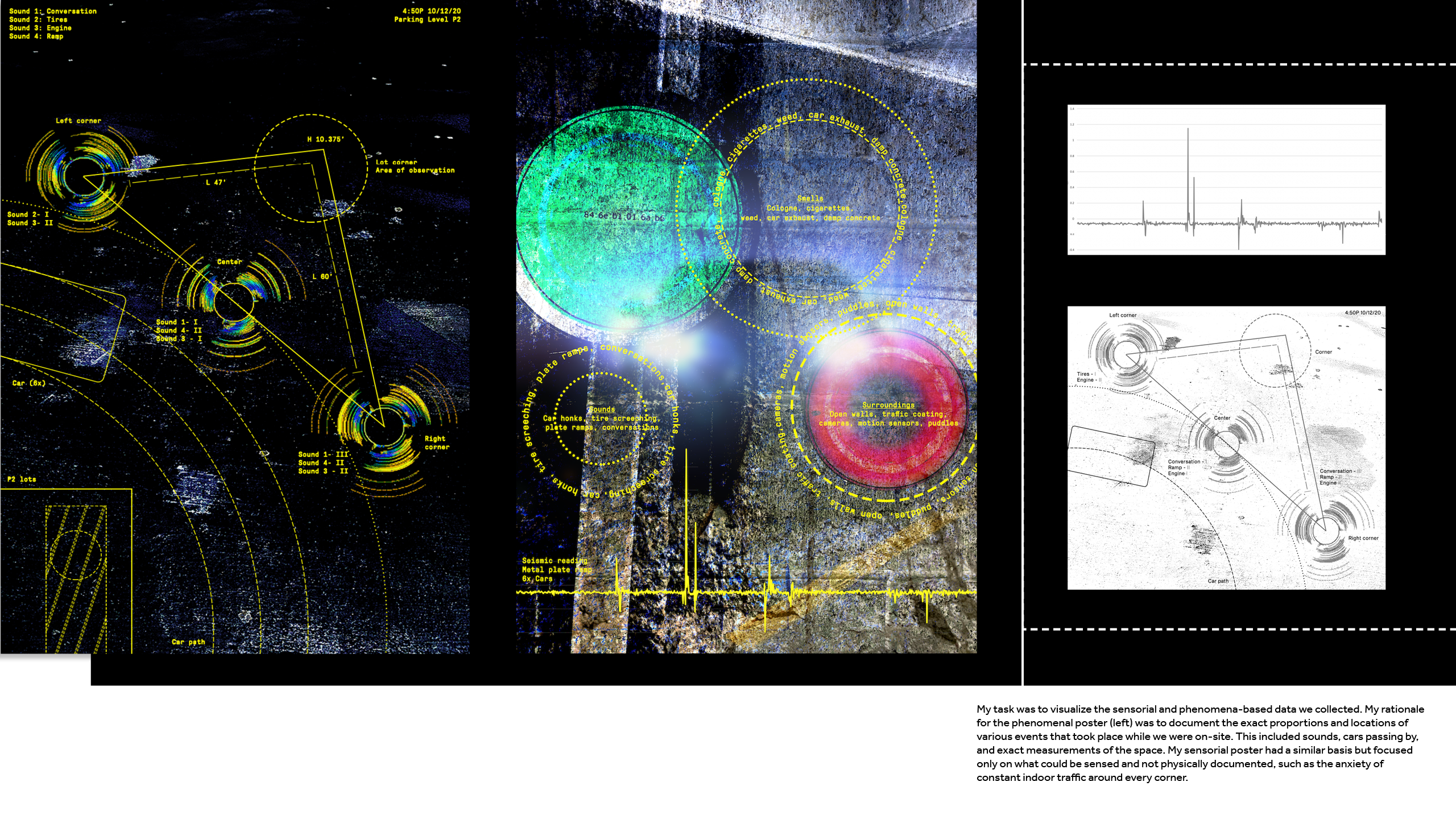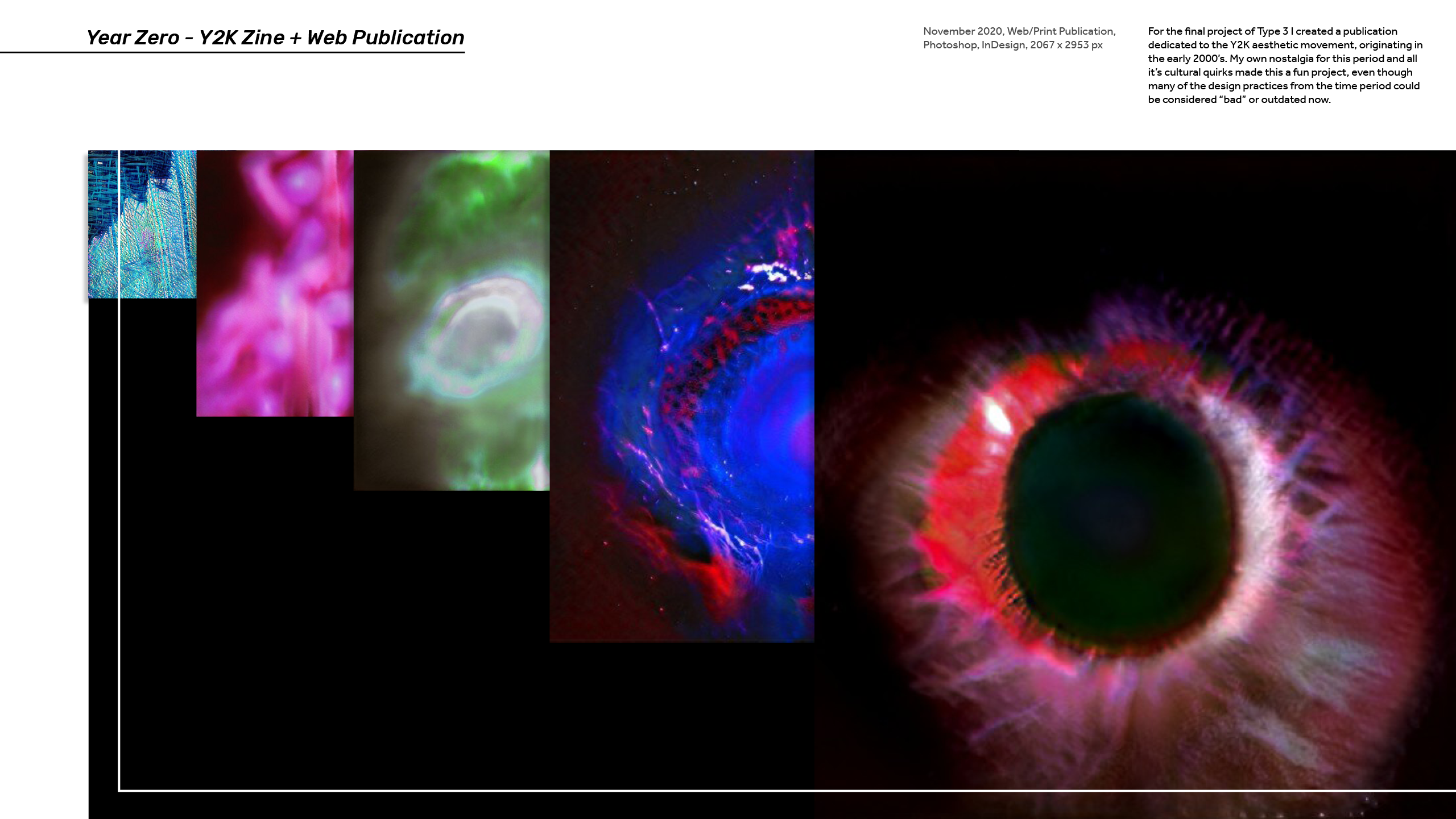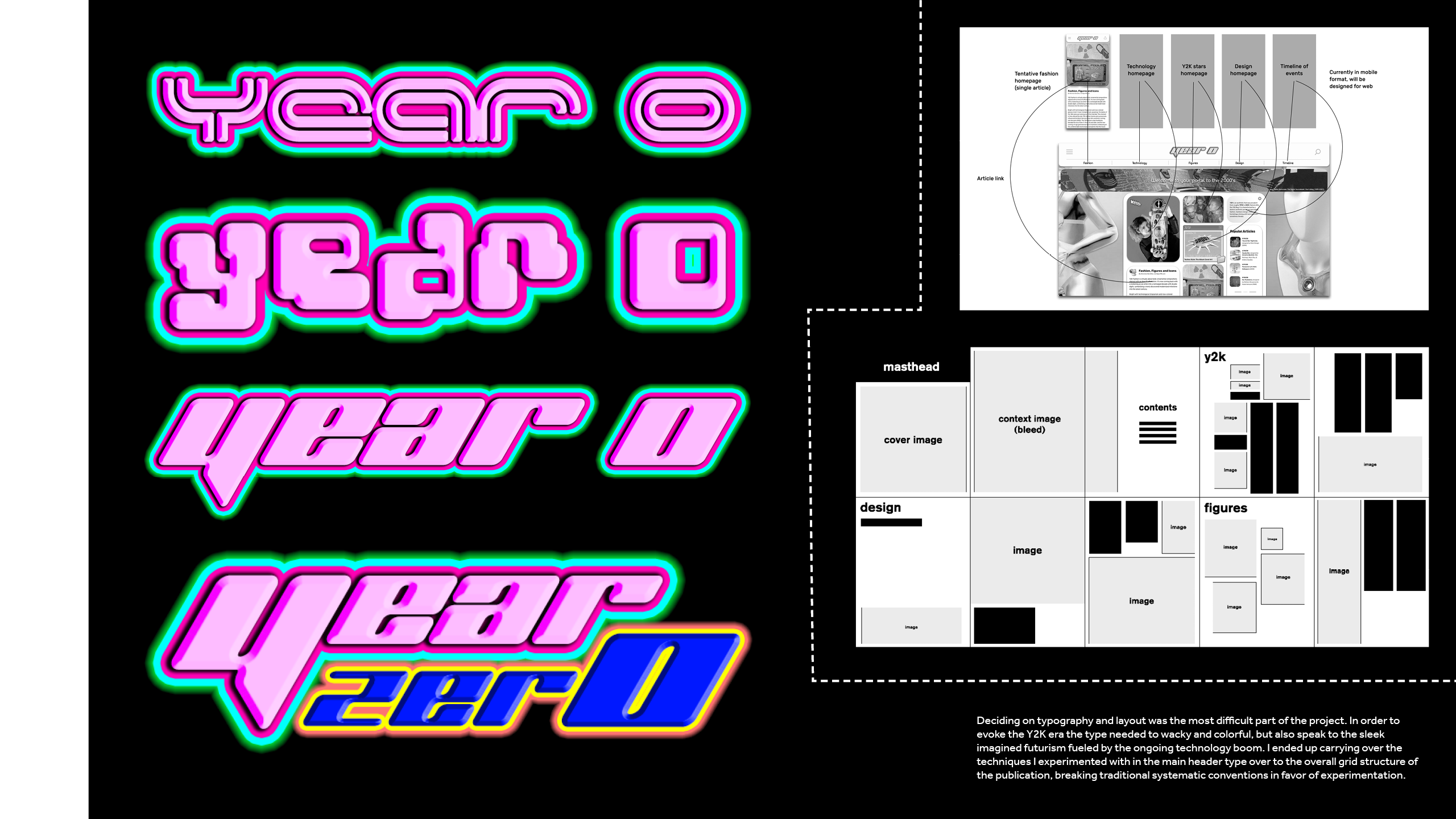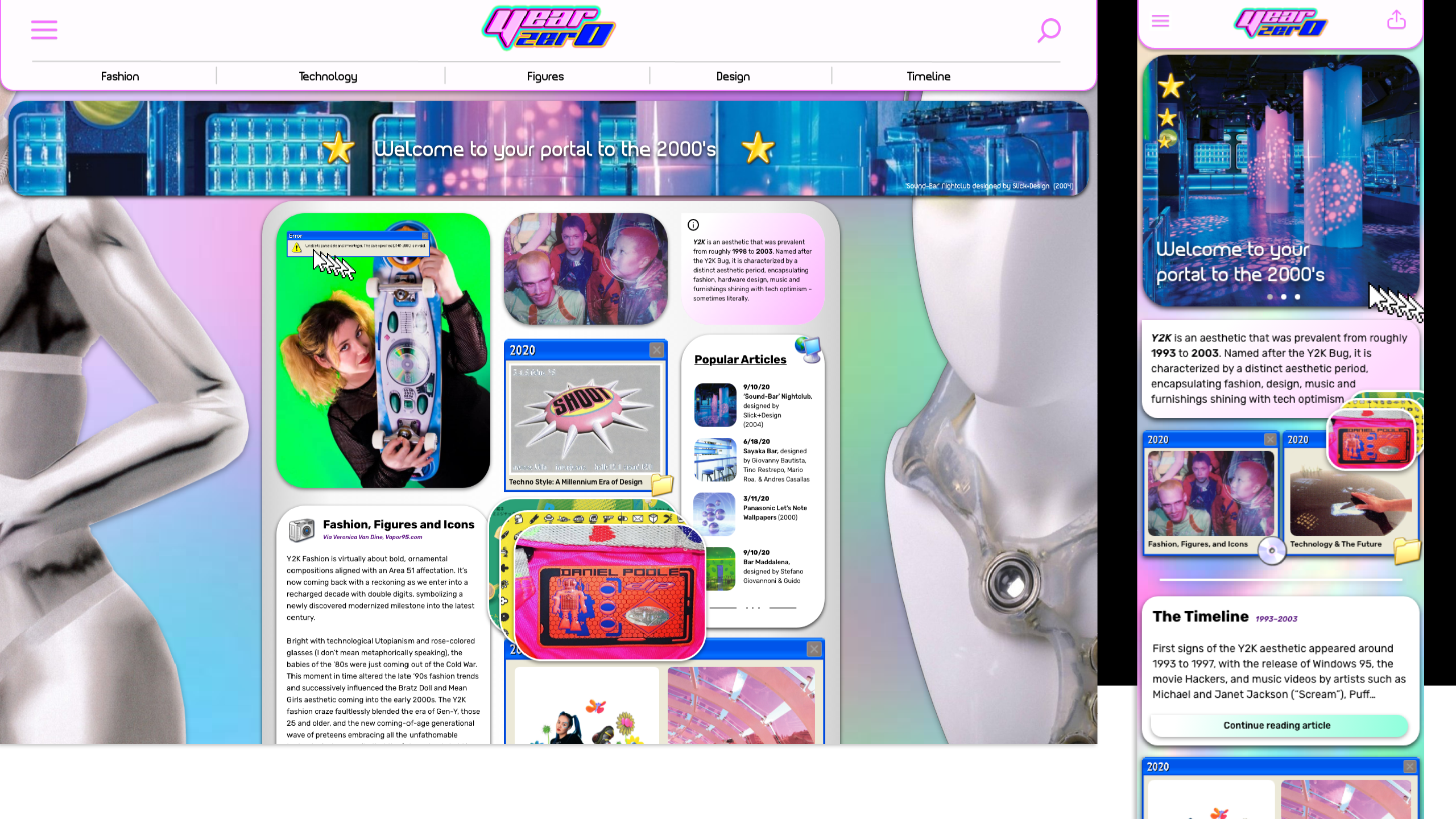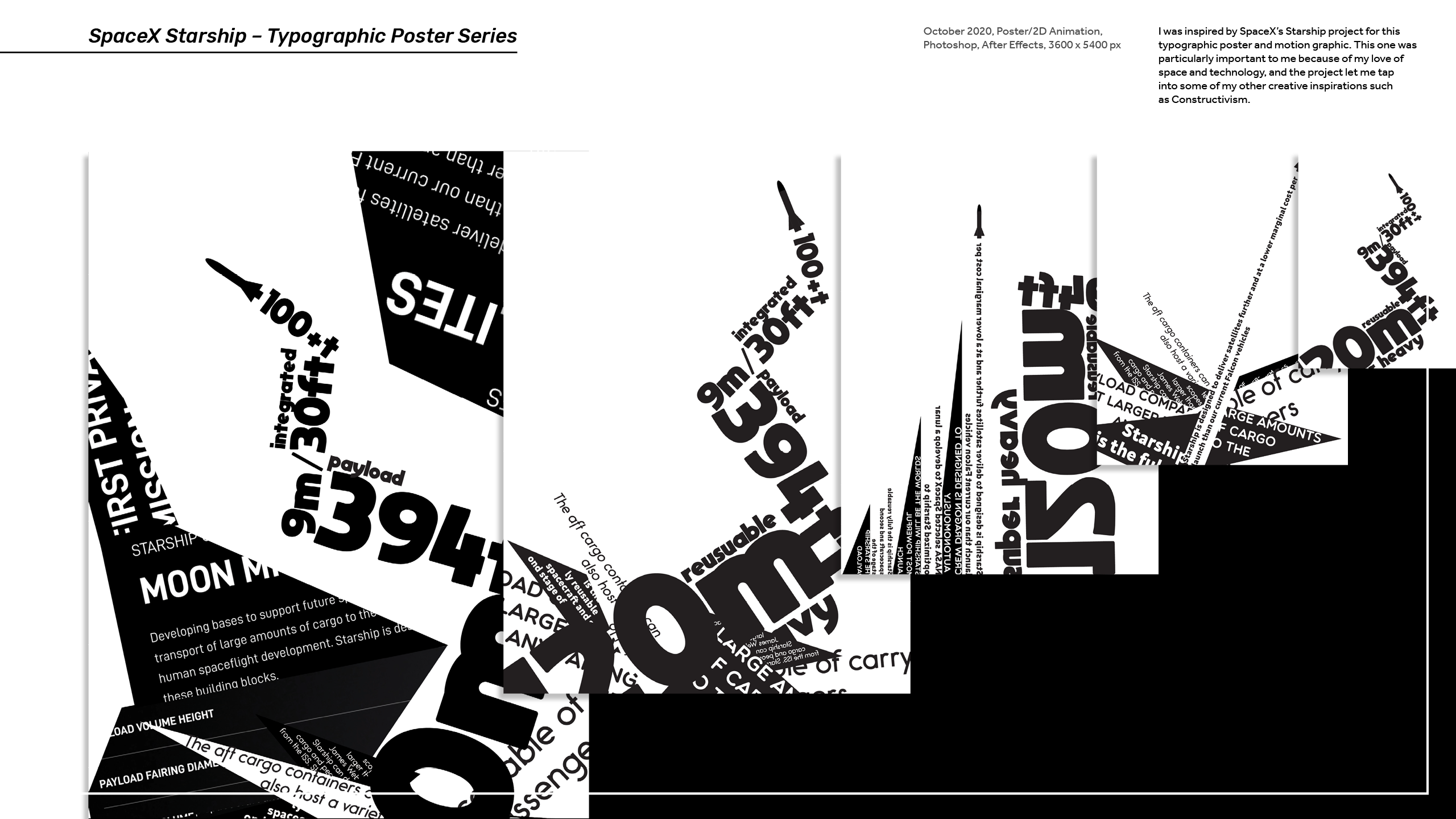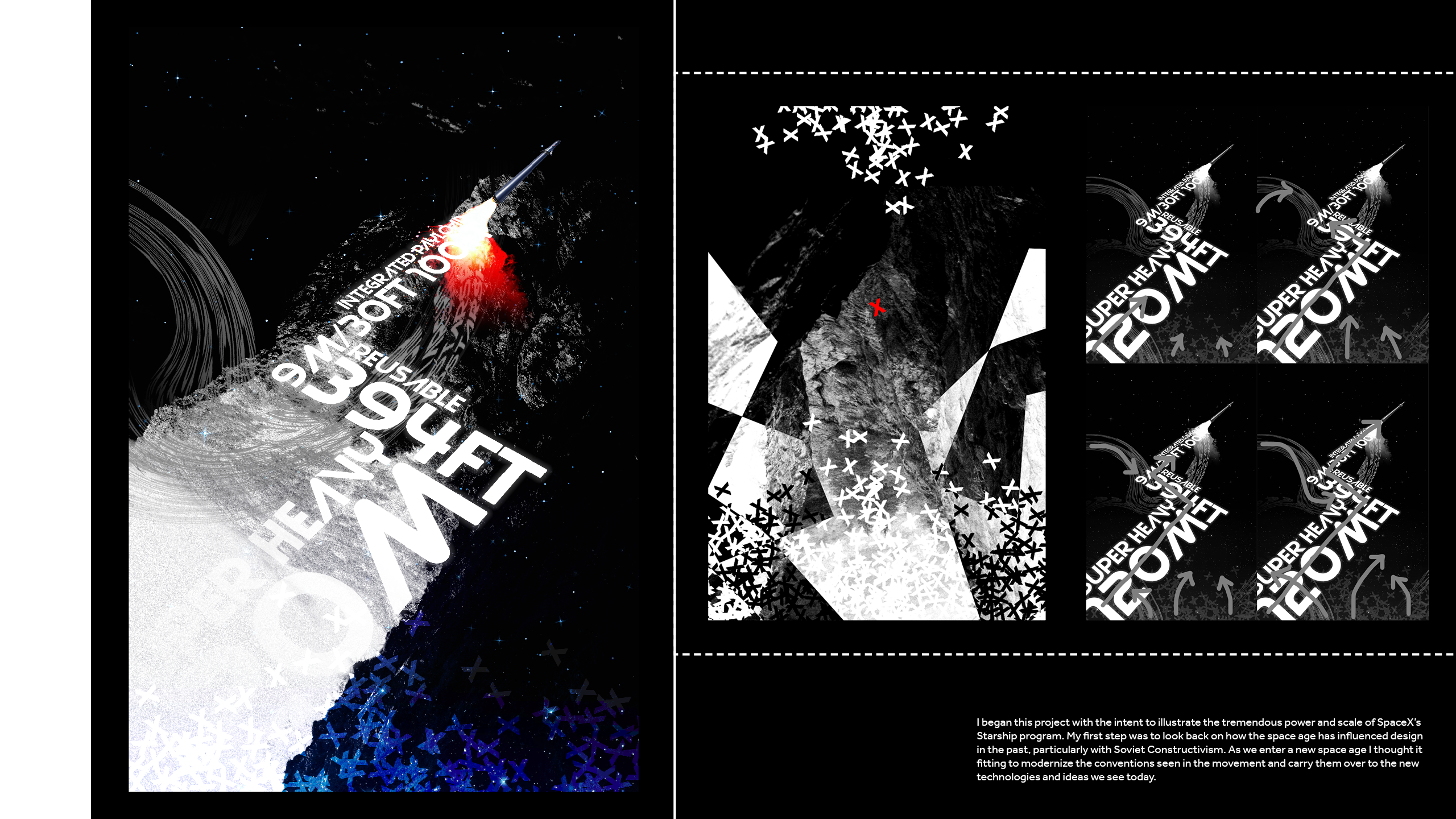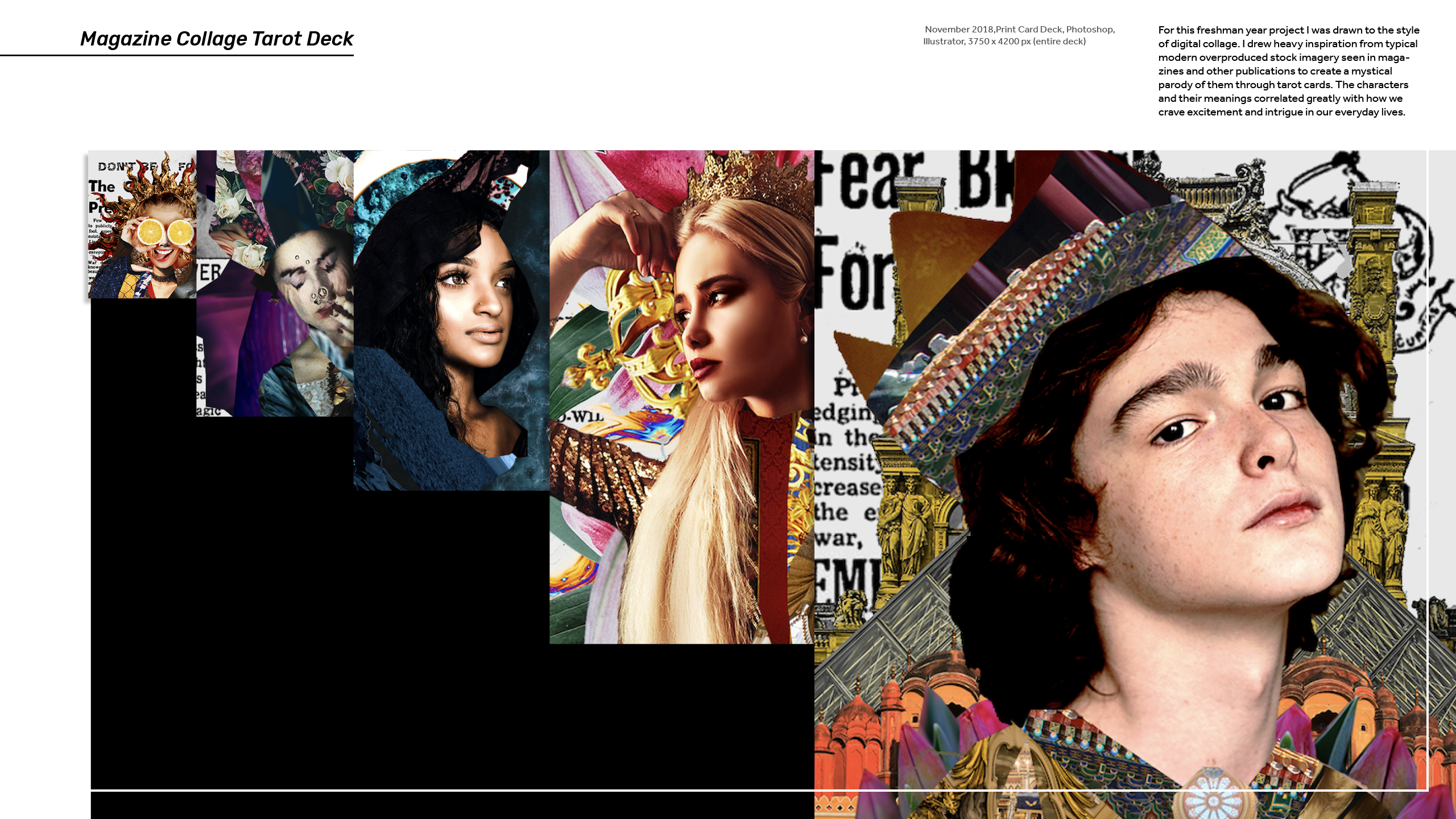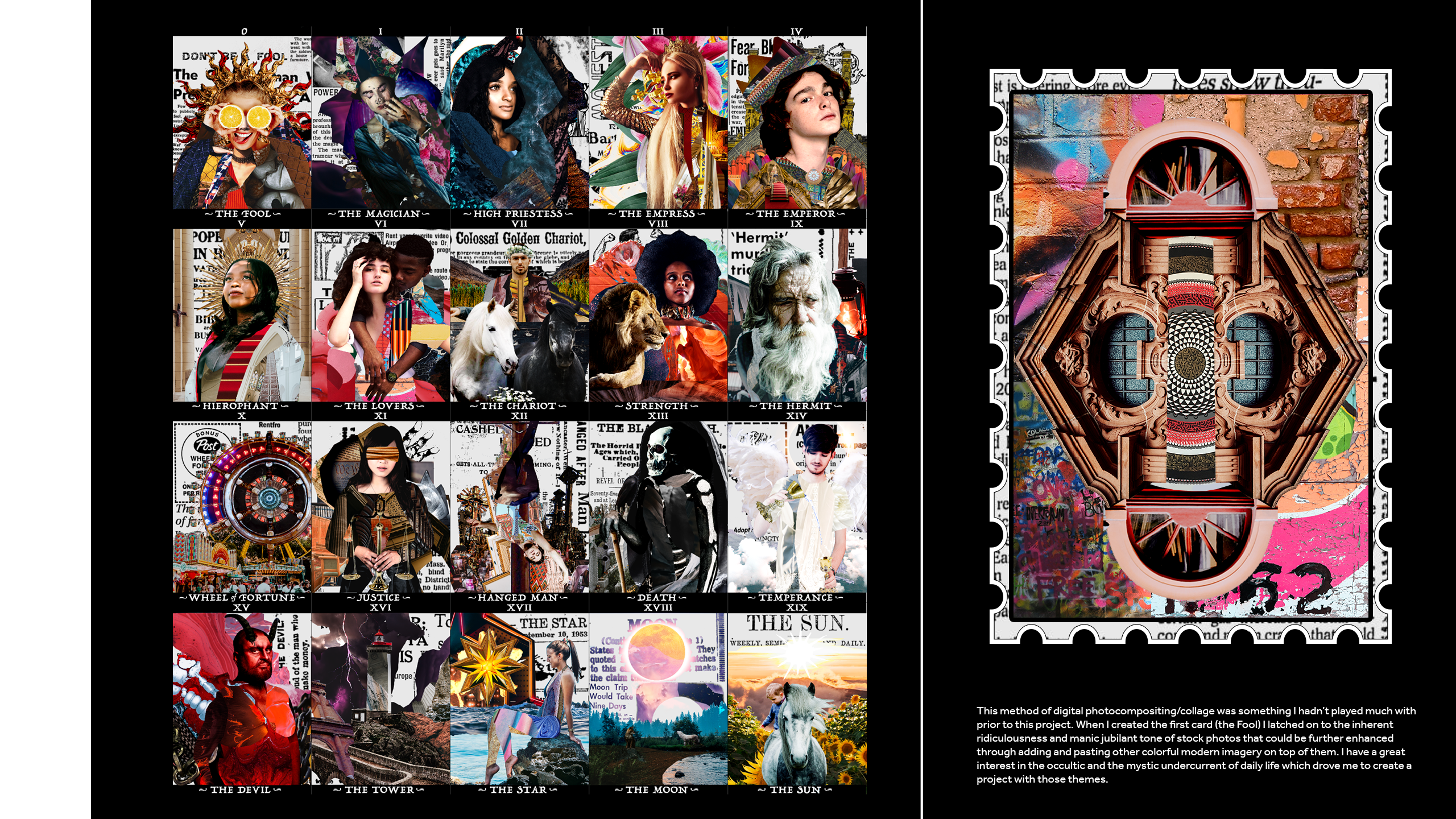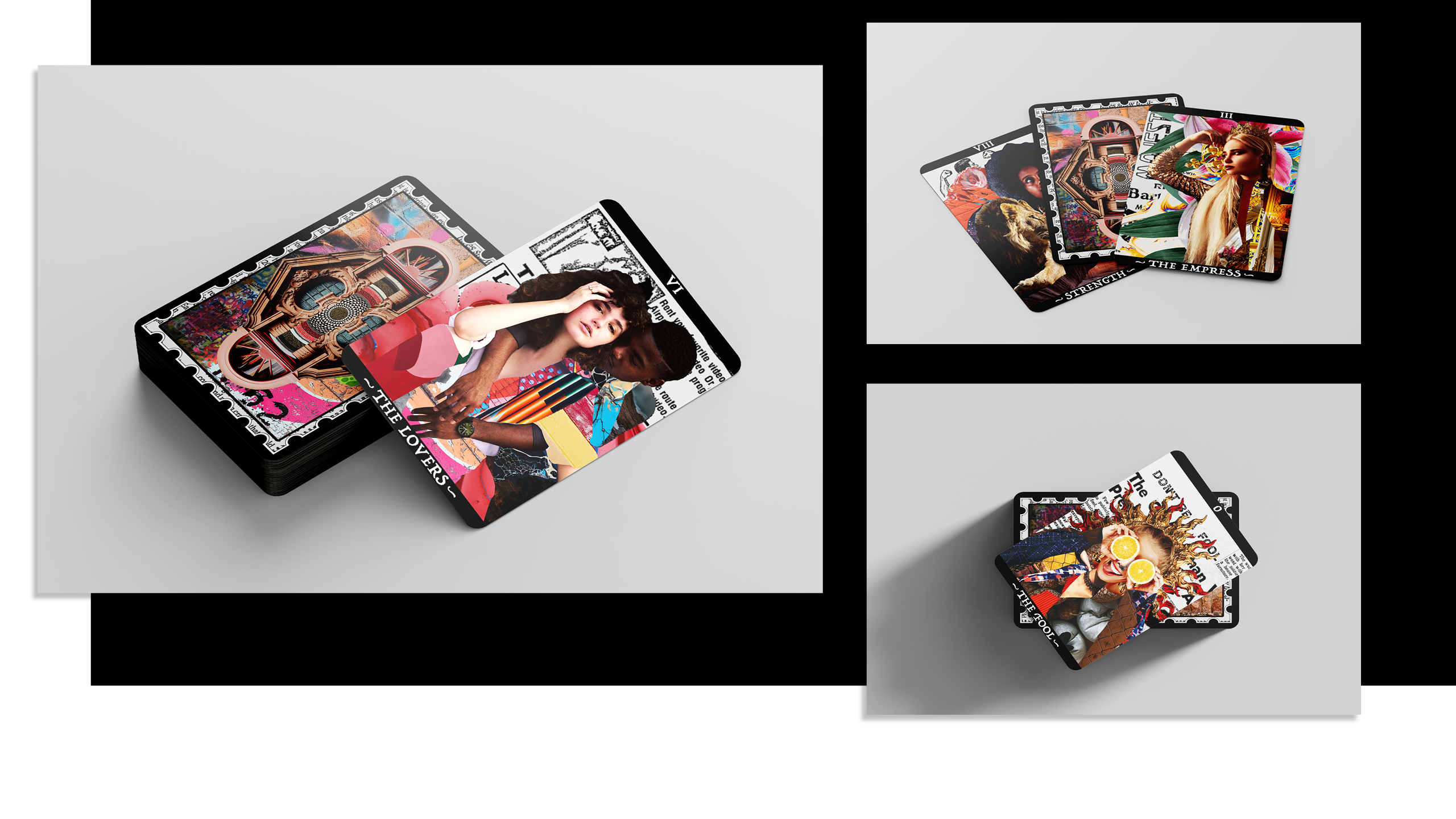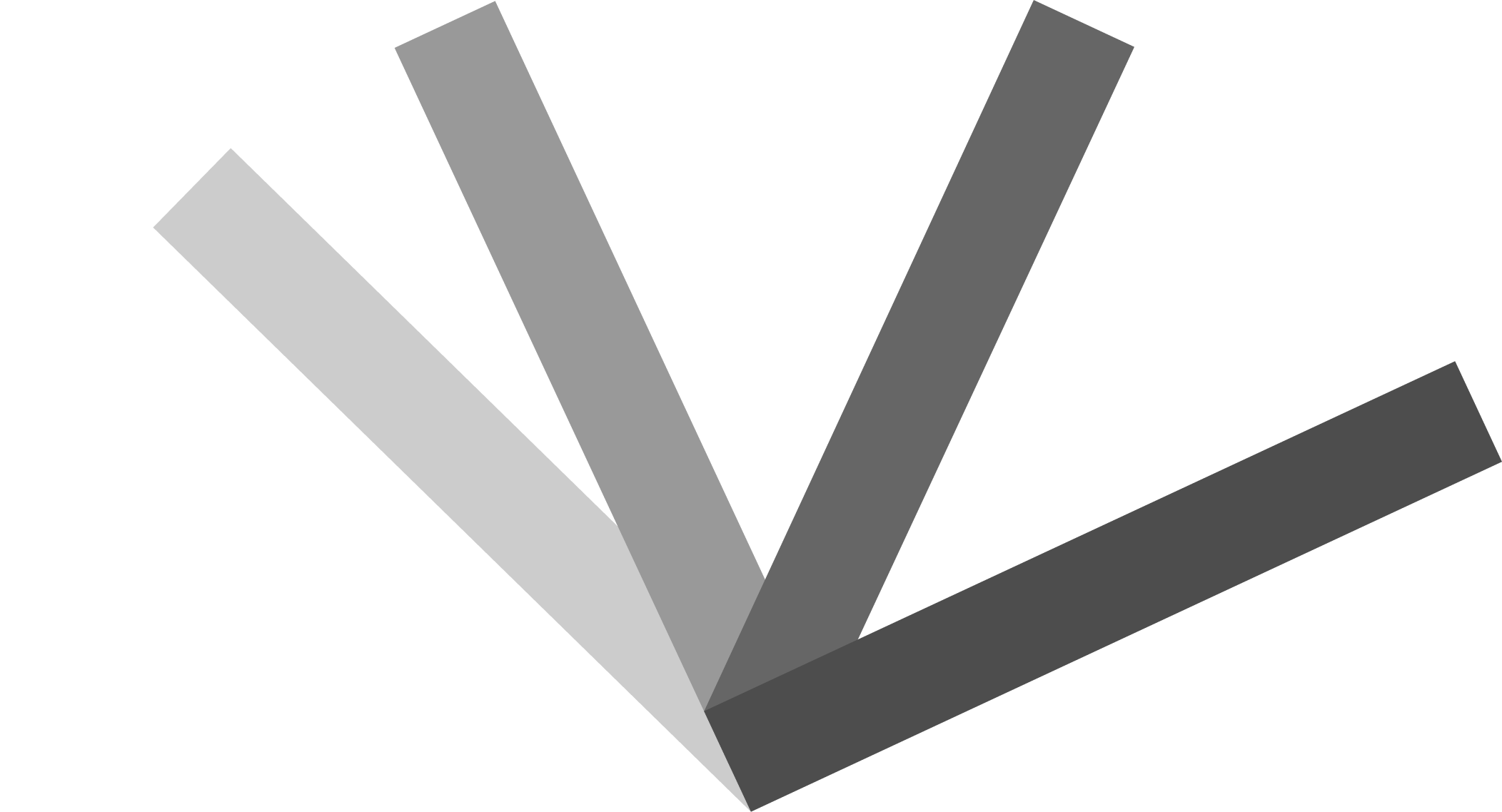
1_Narrative Maps
2_Year Zero_Y2K Zine
3_SpaceX Poster Series
4_Collage Tarot Deck
5_Multiworld Corporation™
6_Motion Graphics
7_Typographic/Formal Studies
8_Branding Work 9_Short Stories
Graphic Design Senior at RISD + Creative Writer living in Harlem, NYC. My work focuses mainly on the conceptual and image-making side of graphic design, aiming to produce unique, meaningful intersections of visual design and semiotic storytelling.
︎ About
︎ Work Archive
︎ Behance
︎ LinkedIn
︎ Instagram
︎ About
︎ Work Archive
︎ Behance
Mall Parking Lot Corner Projections + Artifacts
November 2020 – Motion Graphics/Exhibition Sculpture, Photoshop, After Effects, Projector, PVC, Foam Board, Foam Sealant Spray, 5.25 x 4"
This project taught me a lot about data visualization/collection and critical thinking, on top of working out sculptural solutions. It was significant to me because, as a group project, gave me great insight into how to work as a team to come up with design solutions and steer creative direction in a certain way.
The intent of the project was to encapsulate a specific setting or location within Providence through the use of data collection, map-making and artifact creation. Our thesis was based around the notion of “non-places”, or spaces that only exist between other spaces that aren’t specifically designed or meant for human traversal. We were inspired by the grimy, murky and oppressive atmosphere of the Providence Place Mall parking lot as well as the feeling of non-belonging brought on by the textural dominance that encroached upon us from all sides. What stuck out to us the most however was the strange fire-retardant spray-sealant used as insulation all across the walls and ceilings, giving them almost a rough and natural-looking complexion. We were fascinated by how it paralleled the long history of the mall and its surrounding land, once dirt untouched by urbanization.

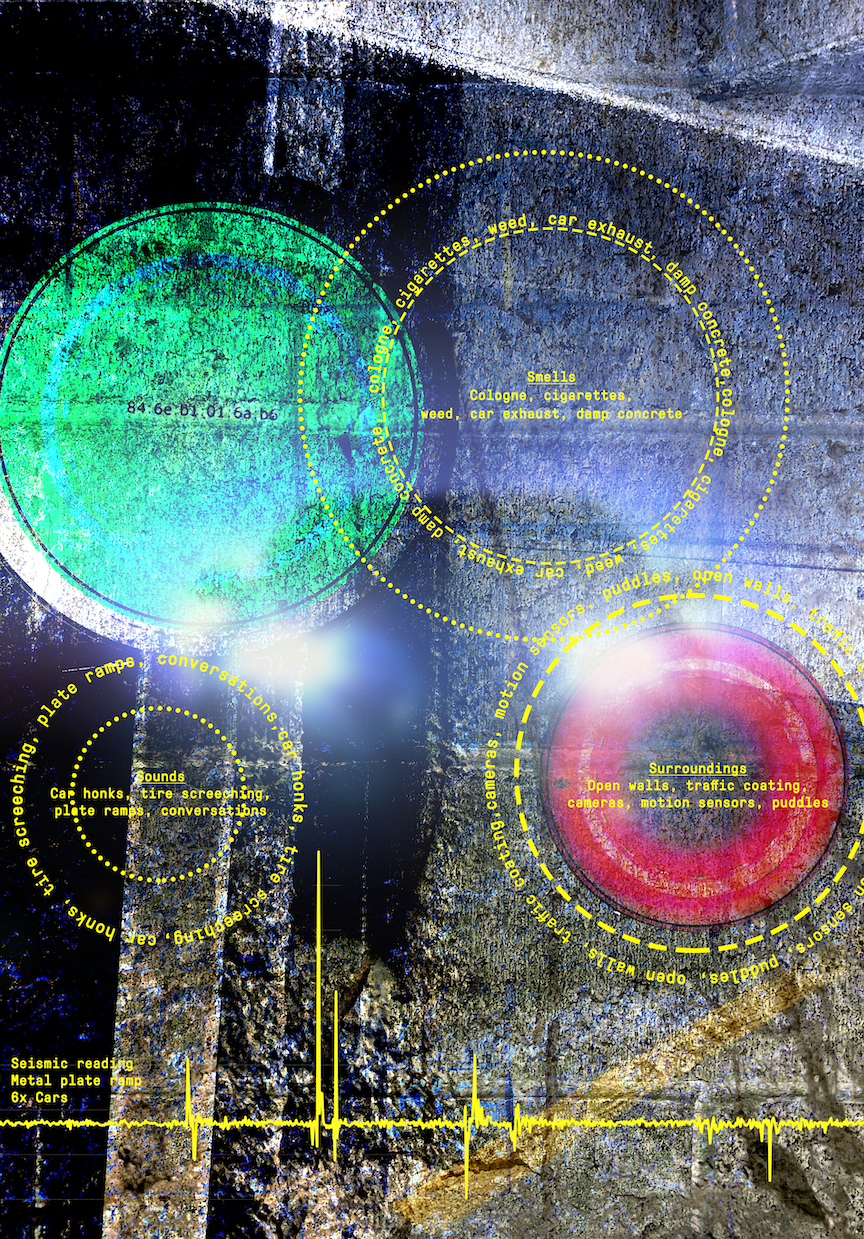
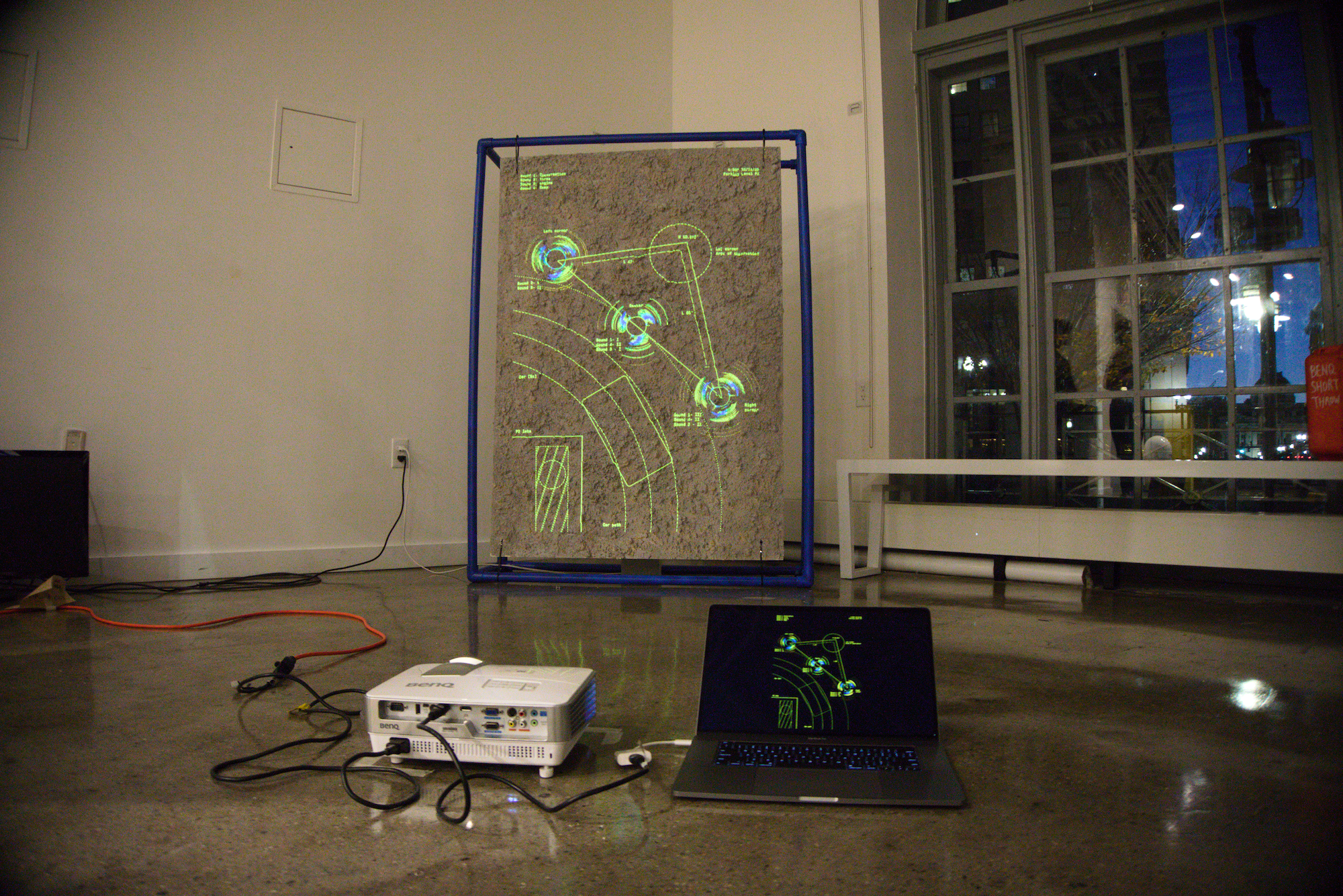
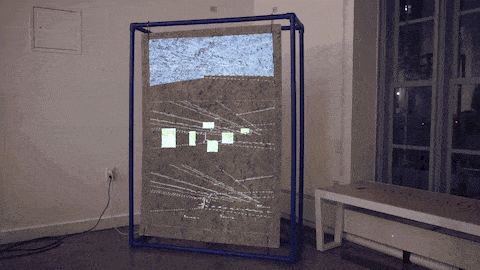
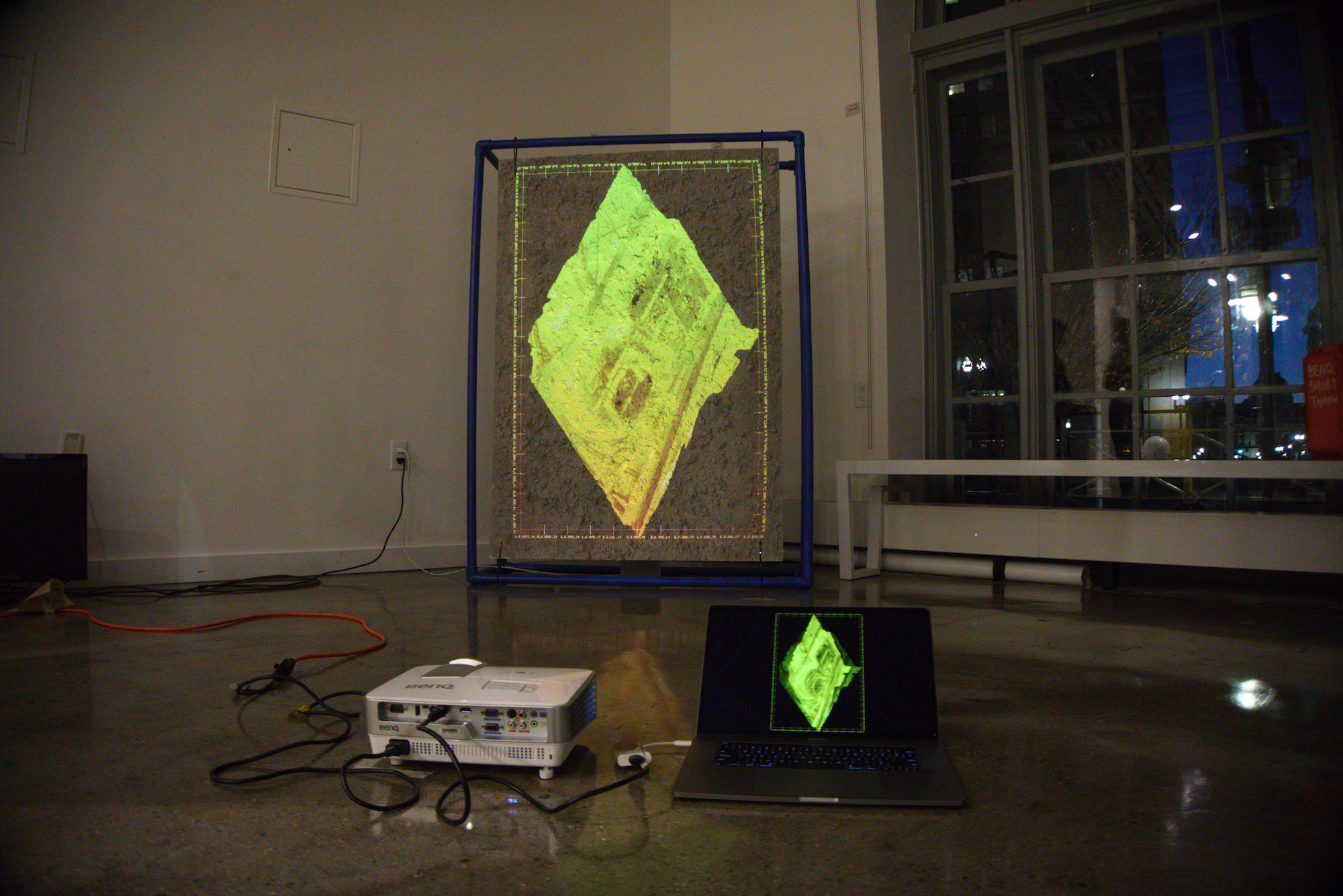
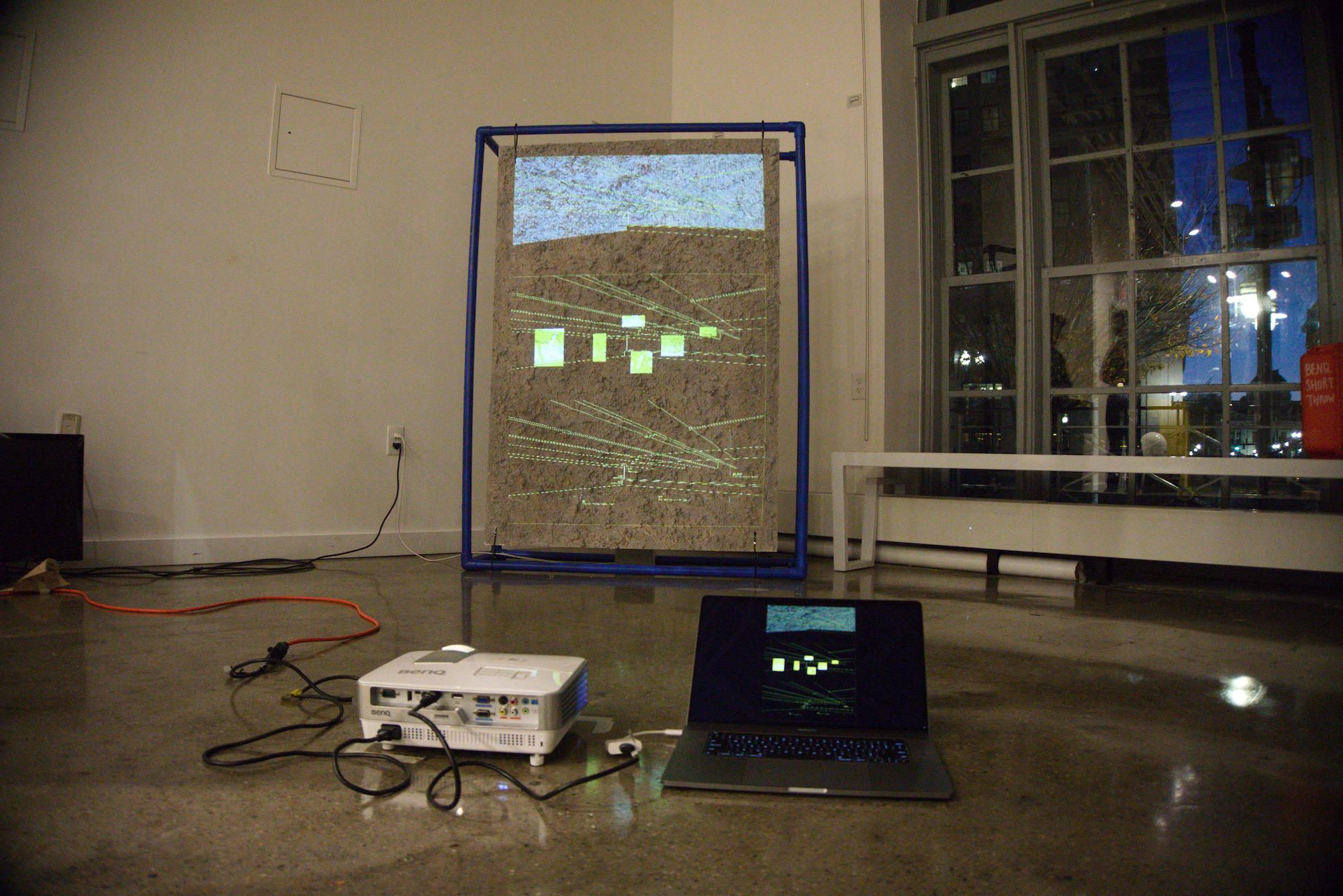
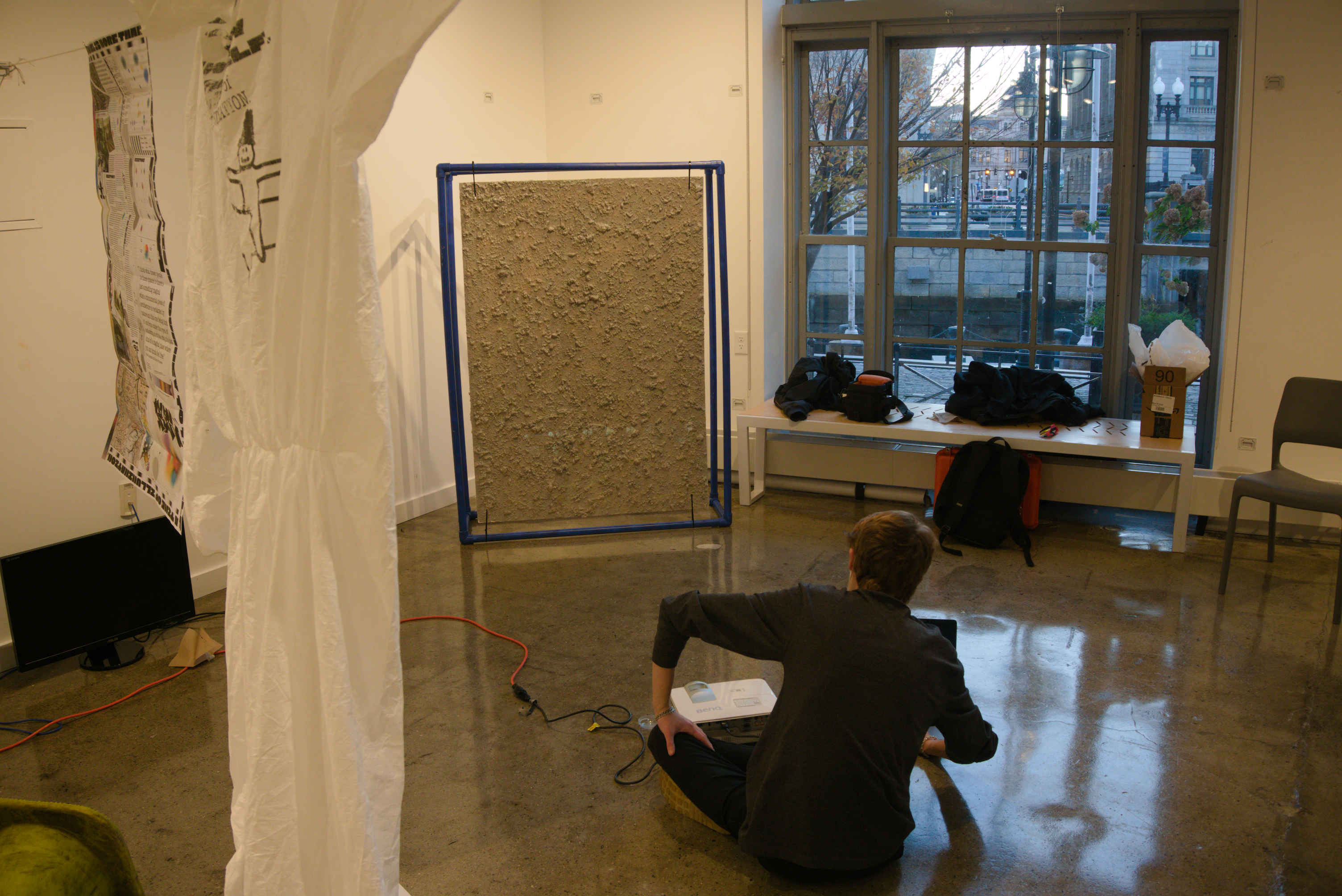
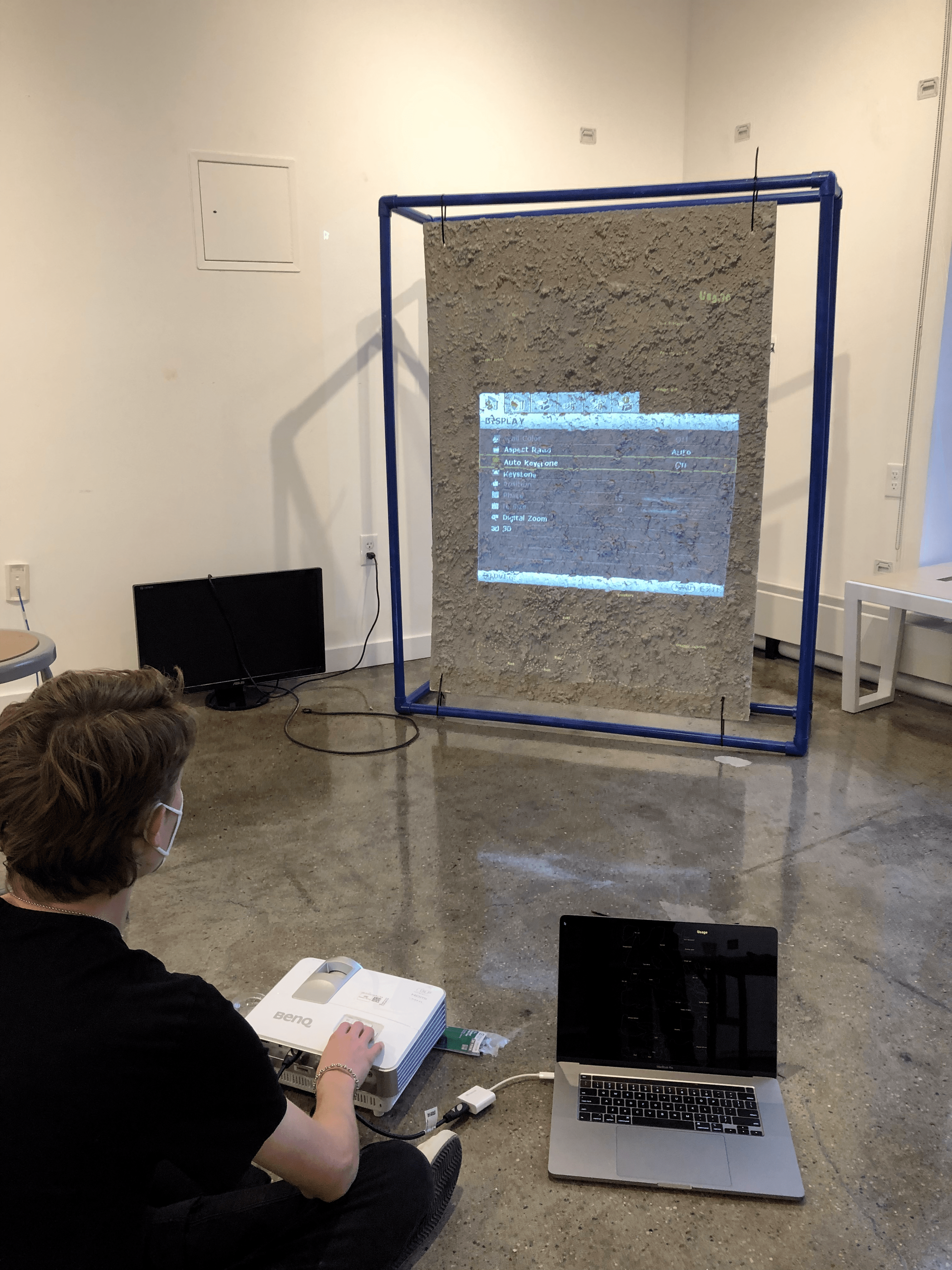
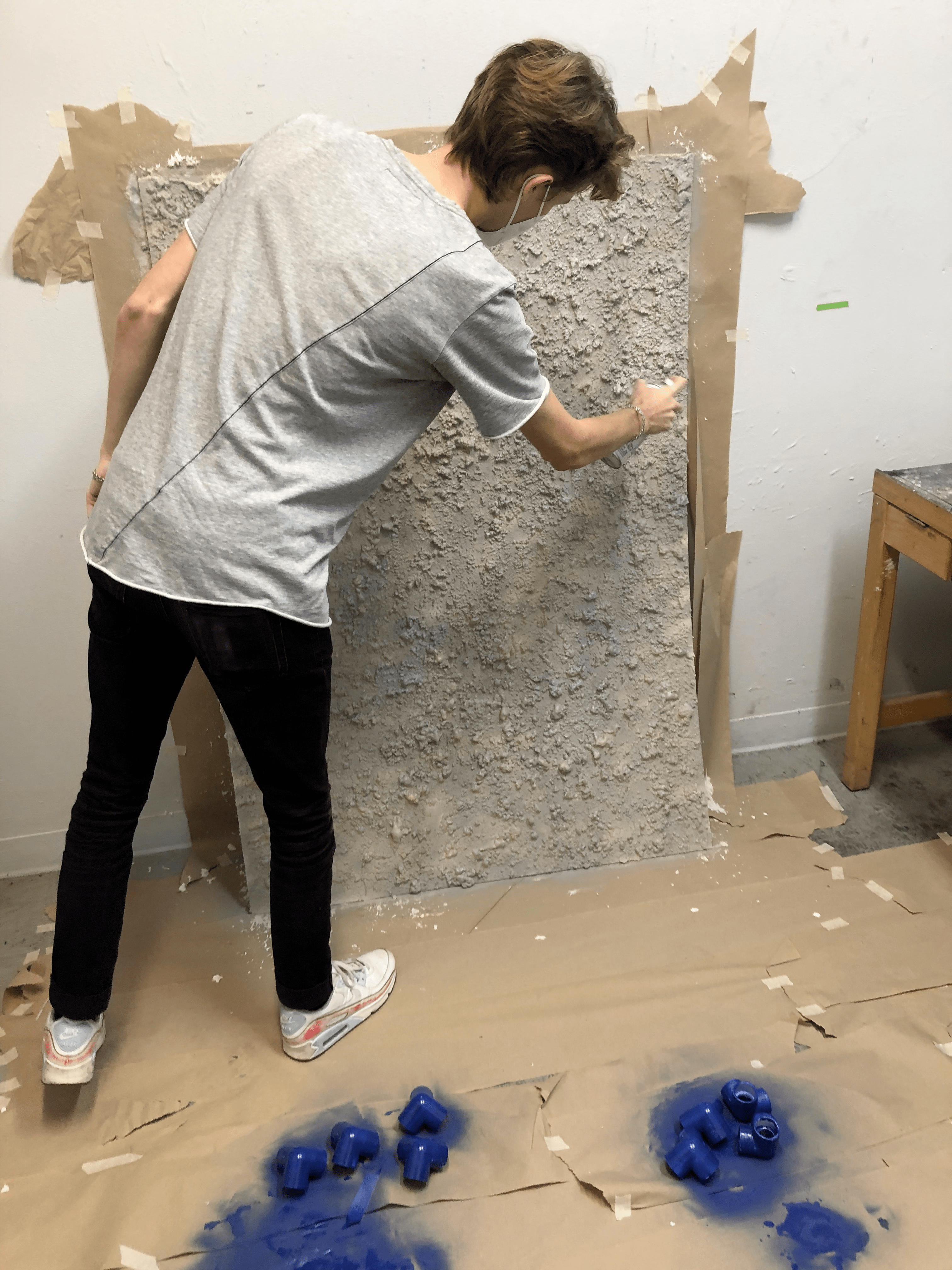
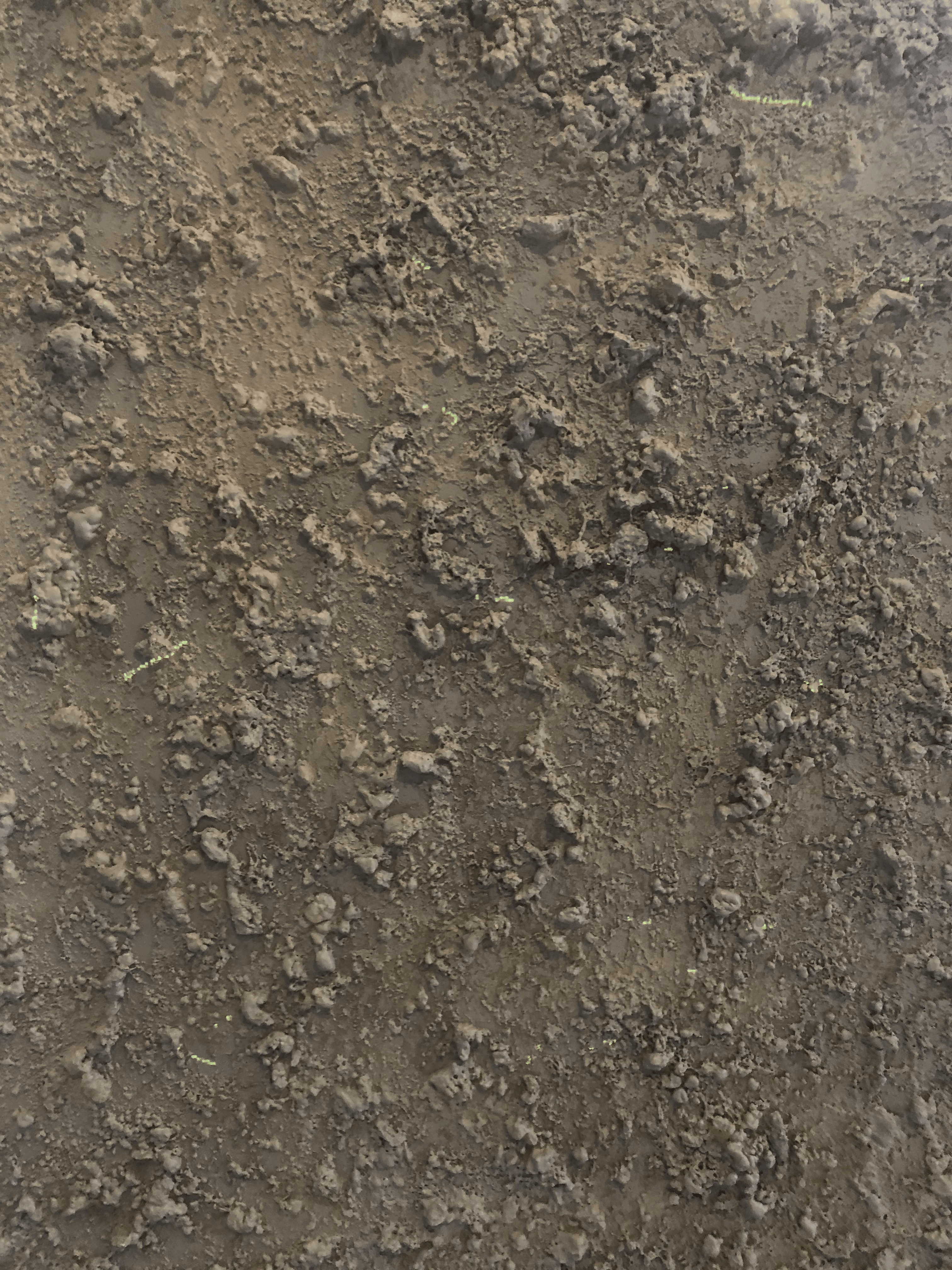
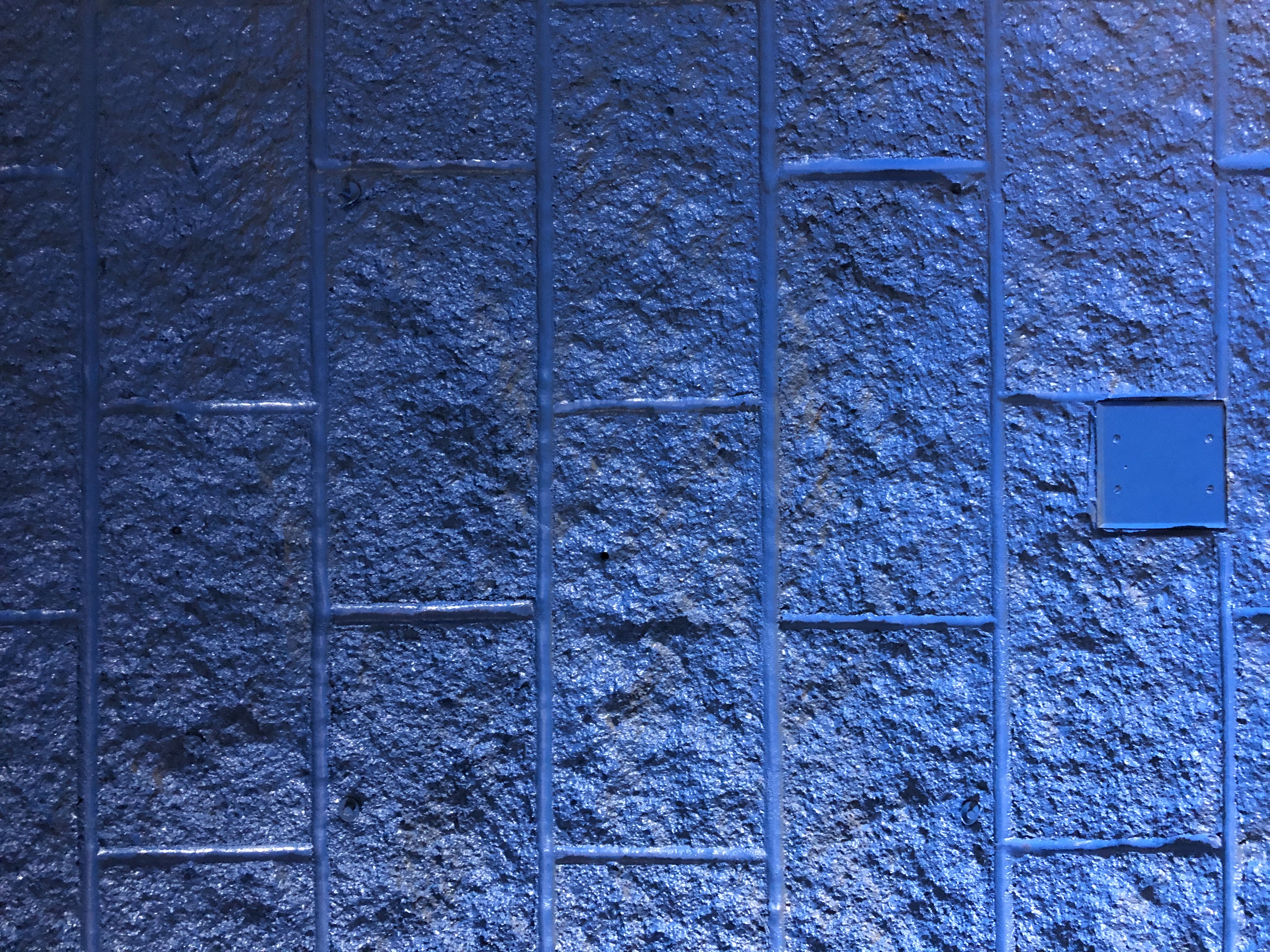
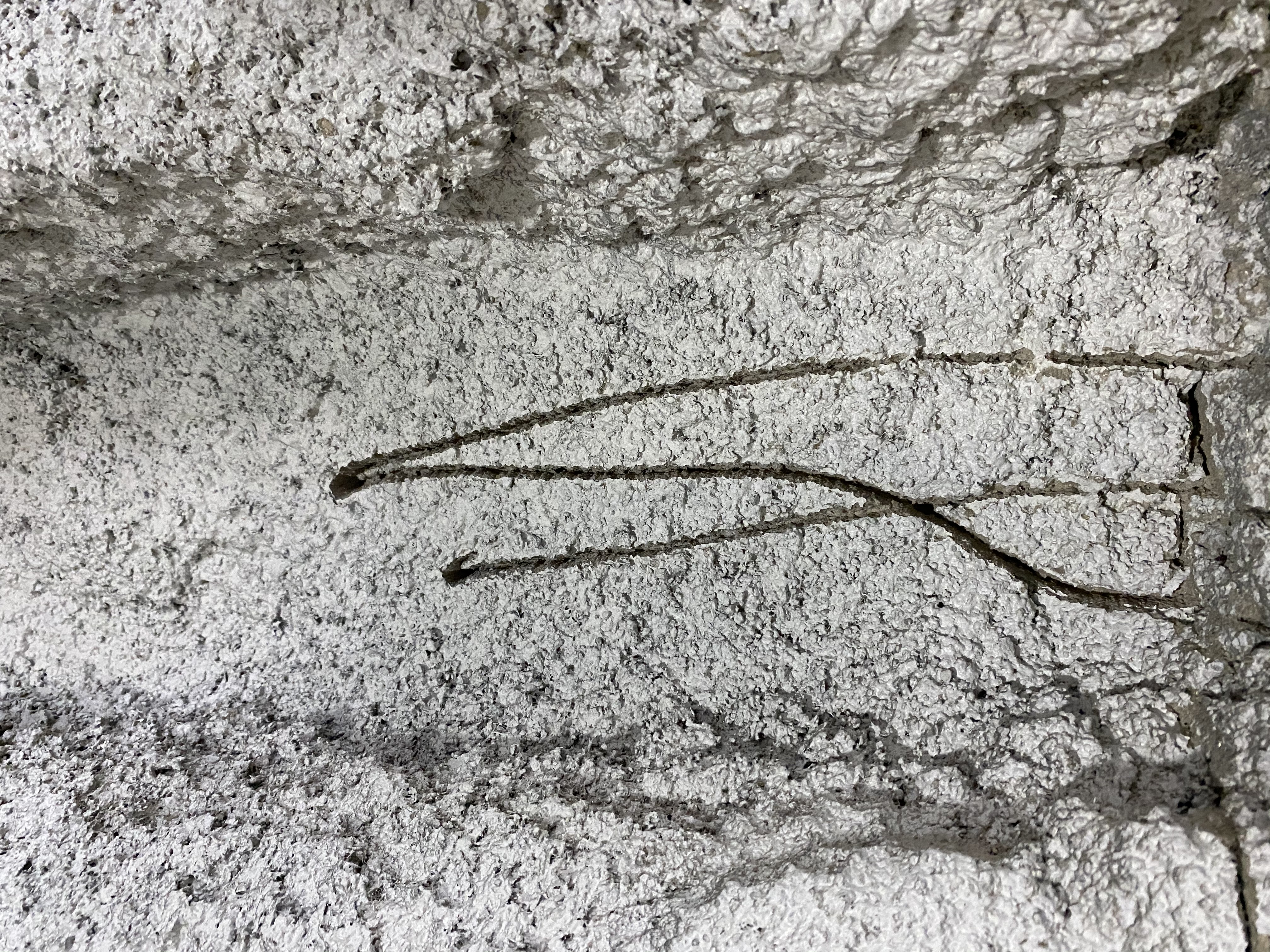
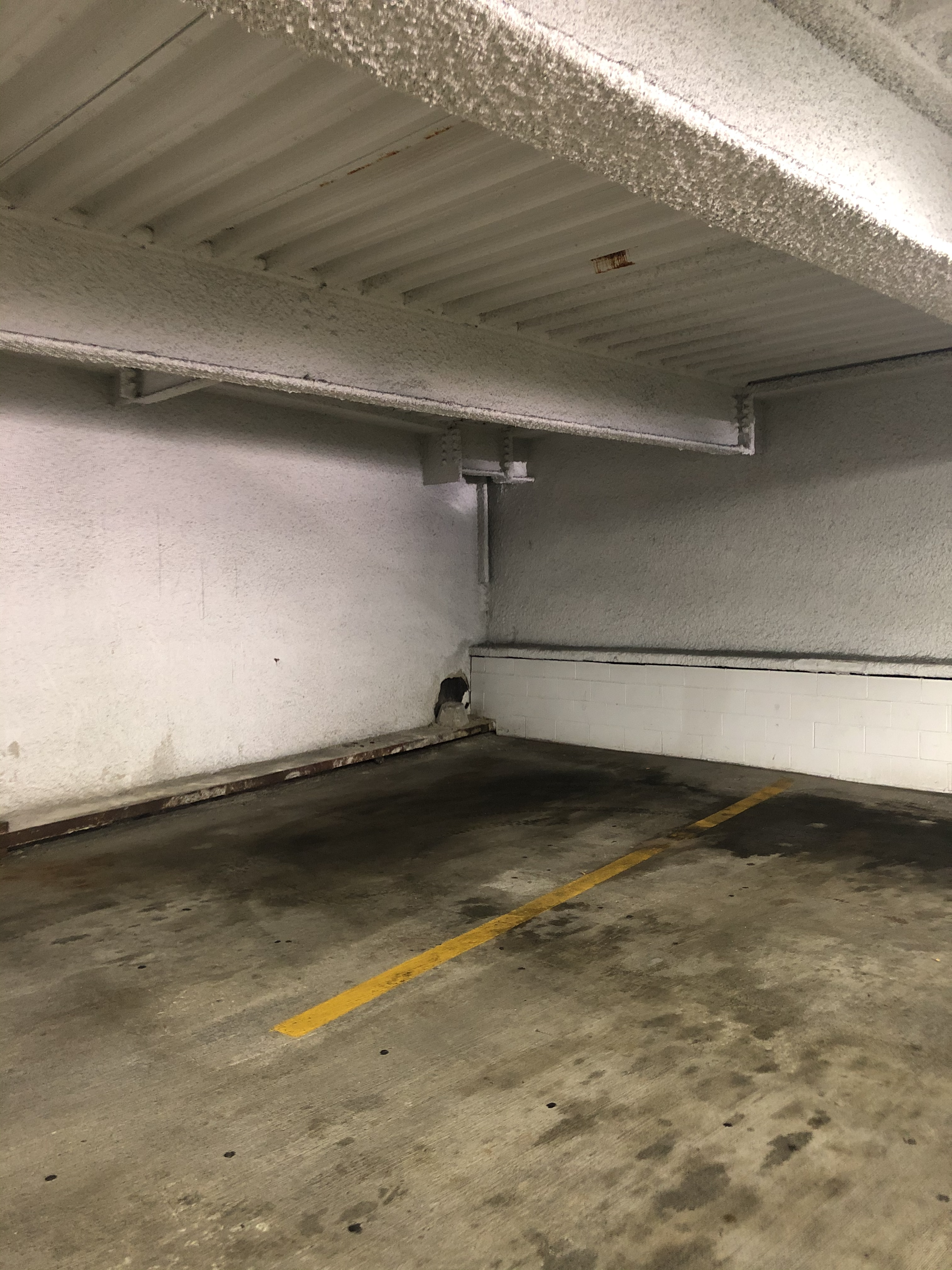

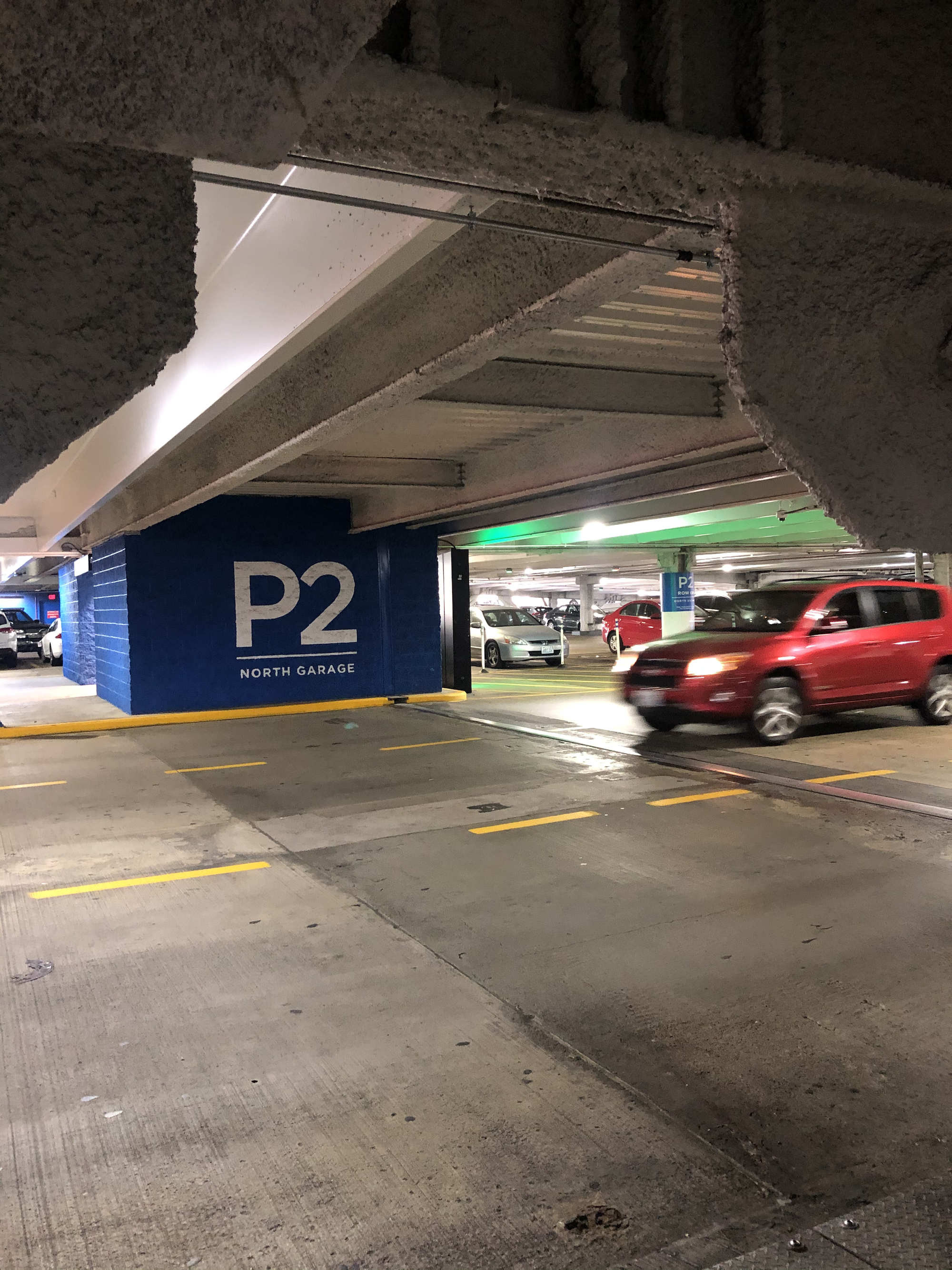
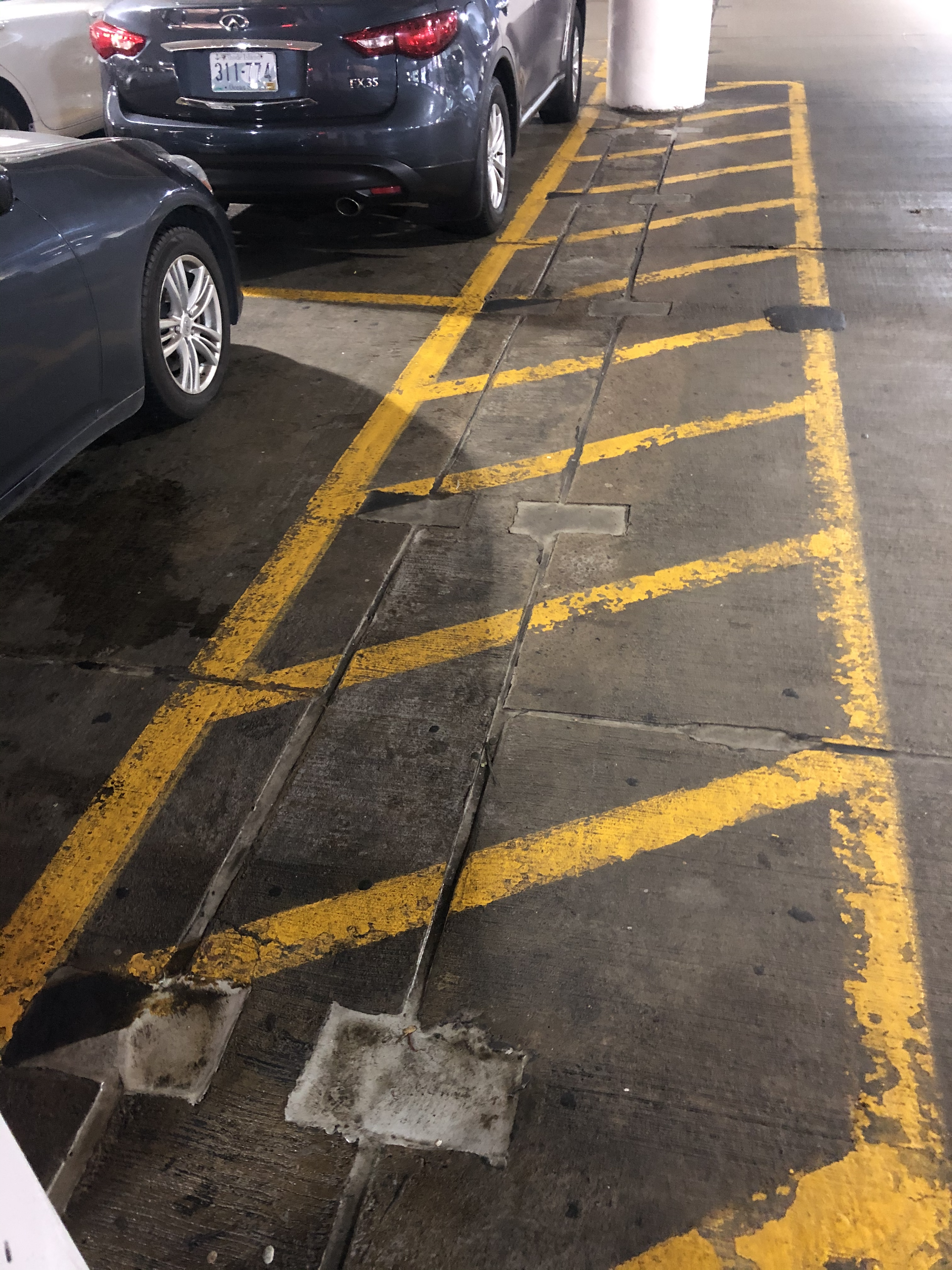
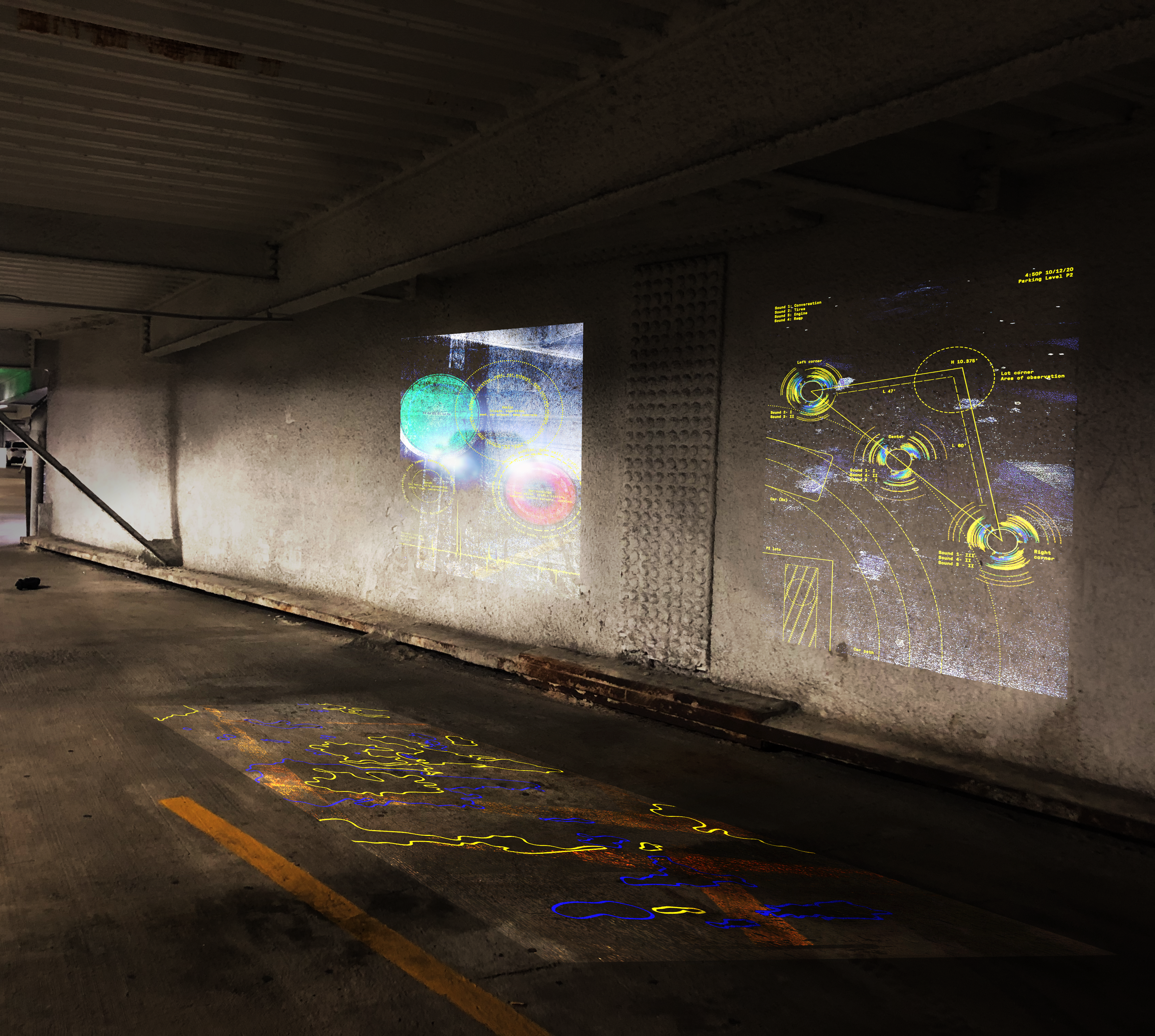
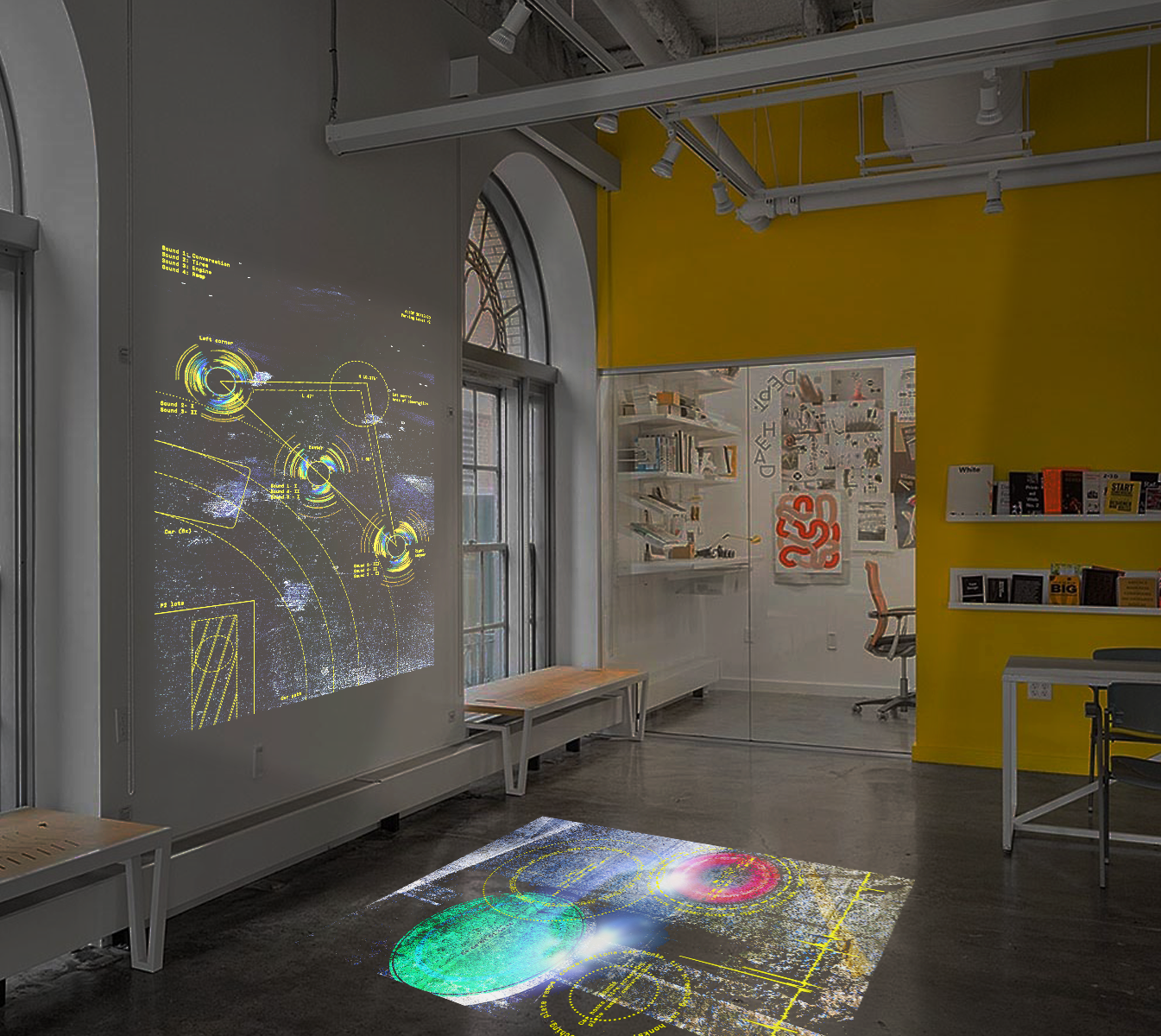
My task specifically was to visualize the sensorial and phenomena-based data we collected at the site. My rationale for the phenomena poster (top left) was to document the exact proportions and locations of various events that took place while we were on-site. That included sounds, cars passing by, and exact measurements of the space. My sensorial poster (top right) had a similar basis but was focused only on what could be sensed and not physically documented, such as the anxiety of constant indoor traffic around every corner.



